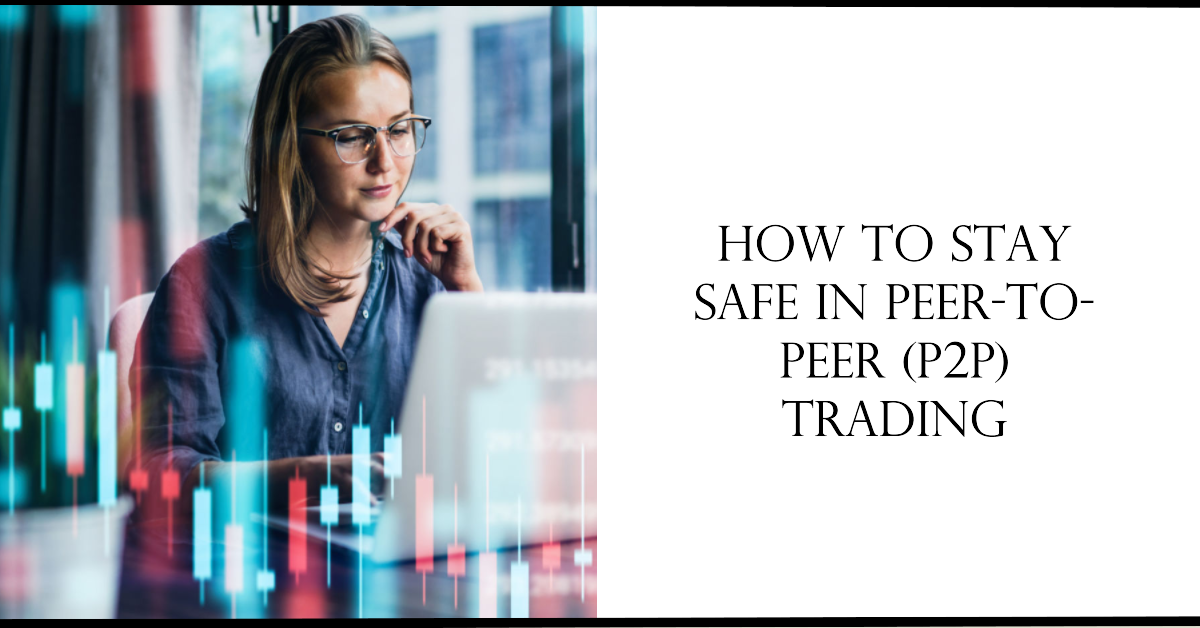
How to Stay Safe in Peer-to-Peer (P2P) Trading
Introduction
Peer-to-peer (P2P) trading has become an increasingly popular way for people to buy and sell cryptocurrencies directly with one another. P2P trading platforms connect buyers and sellers without the need for a centralized exchange, often offering greater flexibility and lower fees. However, with this increased freedom comes a heightened responsibility for users to ensure their own safety and security. In this article, we will explore some key tips and best practices for staying safe while engaging in P2P trading.
Verify the Identity of Your Trading Partner
Before engaging in a P2P trade, it is crucial to verify the identity of the person you are trading with. Many P2P platforms offer user verification features, such as linking social media accounts or providing identification documents. Take the time to review your trading partner's profile, checking their feedback scores, previous trades, and any available identification information. If something seems off or suspicious, trust your instincts and avoid trading with that individual.
Use Escrow Services
Escrow services act as a neutral third party, holding the funds involved in a transaction until both the buyer and seller are satisfied with the trade. By using an escrow service, you can significantly reduce the risk of fraud or non-payment. Many P2P trading platforms offer built-in escrow services, so make sure to take advantage of this feature when conducting trades.
Communicate Clearly and Openly
Open communication is key to a successful P2P trade. Make sure to discuss the terms of the transaction, including the price, payment method, and any additional fees, before agreeing to the trade. Use the platform's messaging system to maintain a record of your communication, and avoid sharing personal information or discussing the trade outside of the platform.
Choose Secure Payment Methods
When selecting a payment method for a P2P trade, it is important to choose one that is secure and widely recognized. Be cautious when using payment methods that are difficult to trace or reverse, such as wire transfers or gift cards, as these can be more susceptible to fraud. Where possible, opt for payment methods with built-in buyer protection features, such as credit cards or reputable online payment services.
Keep Your Personal Information Private
When engaging in P2P trading, it is essential to protect your personal information. Avoid sharing sensitive details, such as your home address, phone number, or bank account information, with your trading partner. Use a secure email address and username that do not reveal your real name or any other identifying information.
Use Two-Factor Authentication (2FA)
Two-factor authentication (2FA) adds an extra layer of security to your P2P trading account, requiring you to provide two separate forms of identification to log in. This can help protect your account from unauthorized access and potential hacks. Most P2P trading platforms offer 2FA options, so make sure to enable this feature for added security.
Monitor Your Trades and Stay Alert
It is crucial to monitor your trades closely and stay alert for any signs of suspicious activity. If you notice anything unusual, such as a trading partner attempting to change the terms of the transaction or asking for personal information, report it to the platform immediately. By being vigilant, you can help protect yourself and others from potential scams and fraud.
Educate Yourself and Stay Informed
Knowledge is power when it comes to staying safe in P2P trading. Take the time to educate yourself on the latest trends, best practices, and potential risks associated with P2P trading. Stay informed about the latest news and updates from your chosen trading platform, as well as any relevant industry developments. The more you know, the better equipped you will be to protect yourself and your investments.
Establish Trust and Build a Network
Building trust with other users in the P2P trading community can be invaluable in ensuring a safe and secure trading experience. Engage in open communication with other traders, share your experiences, and learn from others. By cultivating a network of trusted trading partners, you can minimize the risks associated with P2P trading.
Be Cautious with High-Value Trades
When engaging in high-value trades, it is essential to be extra cautious and diligent in ensuring the security of the transaction. Consider splitting large trades into smaller transactions to minimize the risk of loss. Additionally, for high-value trades, you may want to consider using additional verification methods, such as video calls or in-person meetings, to confirm the identity of your trading partner.
Conclusion
P2P trading offers a unique opportunity to buy and sell cryptocurrencies directly with other users, often with lower fees and greater flexibility than centralized exchanges. However, it also comes with its own set of risks and challenges. By following the best practices outlined in this article, you can help protect yourself and ensure a safe, secure, and successful P2P trading experience.
